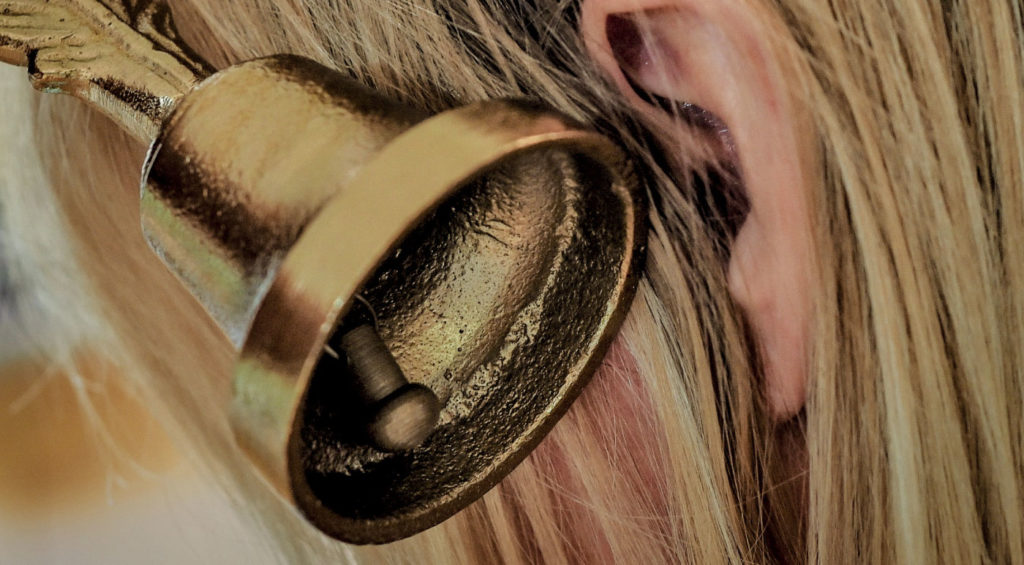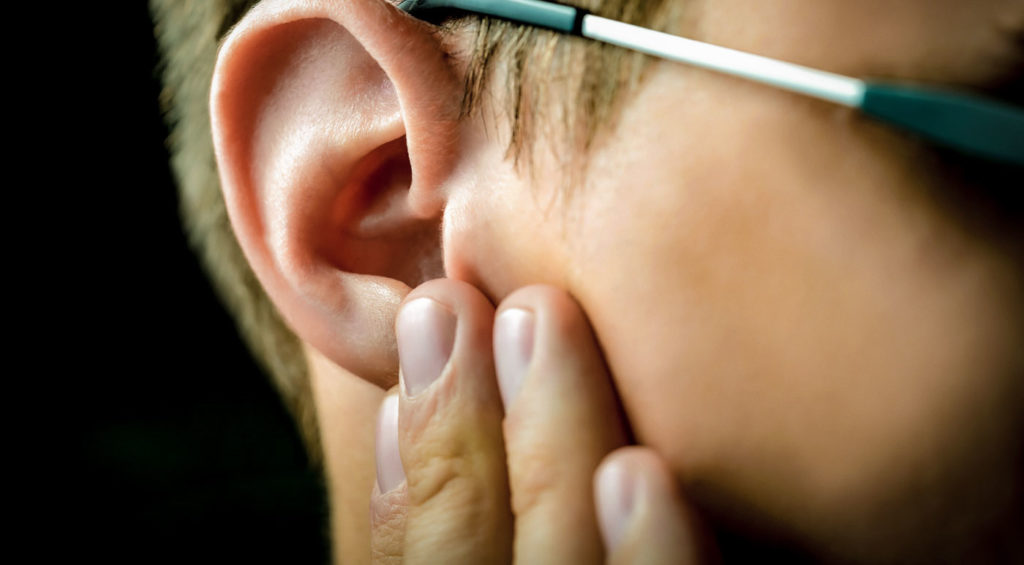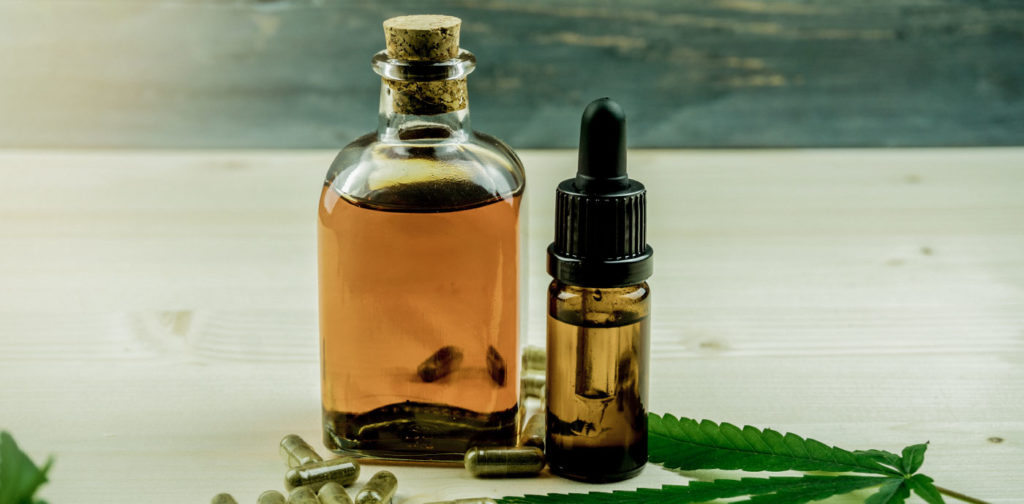
The use of CBD oil for tinnitus is an emerging topic. Theories indicate that CBD oil may help calm certain parts of the brain, a disruption of which may be a cause of tinnitus. However, human studies are lacking, and more research is needed on this topic. We may not have conclusive evidence, but we do have some answers. Keep reading!
Table of Contents
- What is Tinnitus?
- Causes of Tinnitus
- Conventional Tinnitus Treatment Options
- What is CBD Oil?
- CBD and Tinnitus
- How CBD Could Help Tinnitus
- Anecdotal Use of CBD and Tinnitus
- A Summary of What the Research Says
- Proper Precautions for Using CBD
- Conclusion
What is Tinnitus?
Over 50 million American people suffer from tinnitus, commonly called “ringing in the ears.” Tinnitus is the perception of sound close to the head without an external source. The condition most often presents as buzzing, ringing, or hissing. The ringing can be persistent or it can come and go at times. Sometimes tinnitus can be one of the first signs of hearing loss.
Causes of Tinnitus

Common causes of tinnitus include:
- Accumulation of ear wax
- Exposure to loud noises
- Ear infections
- Certain medications
- Head and neck injuries
- Damage to the inner ear
These common causes can result in the disruption of normal nerve signals that travel along the hearing pathway of the brain. As a consequence, the brain interprets signals as a ringing or buzzing sound.
There is also subjective tinnitus, where no identified cause is determined. In subjective tinnitus cases, some theorize that the brain becomes hyperactive in some areas, similar to a seizure. In both cases, 50% of people with tinnitus also experience depression, due to the negative impact their symptoms have on their quality of life.
Conventional Tinnitus Treatment Options
Treatment of tinnitus is dependent on the underlying cause. Therefore, the first step in effectively treating tinnitus is identifying the cause through medical testing and imaging. For instance, if a blood vessel was creating pressure on a nerve, the blood vessel could be surgically altered to alleviate the stress.
Unfortunately, in most cases, despite medical testing, the cause of tinnitus is unknown, such as in subjective tinnitus. In these cases, treatment is geared at reducing the symptoms and their impact on the person’s daily life. The majority of treatments for tinnitus and subjective tinnitus are not consistently effective in reducing symptoms.
What is CBD Oil?

Cannabidiol (CBD) is an oil extract from the Cannabis Sativa plant, which is often referred to as the hemp plant. Some people confuse CBD oil with marijuana, but they are not the same thing. CBD oil does not contain any delta (9)-tetrahydrocannabinol (THC), which is a psychoactive compound that is also found in marijuana. The majority of CBD oil is extracted from the industrial hemp plant, not the marijuana plant.
The legal status and attainability of marijuana vary from state to state in the U.S. Some states, such as Arizona and California, have legalized medical marijuana as long as the certification is filled out by a medical professional. Unlike marijuana, hemp-derived CBD oil is legal in all 50 states and does not require a prescription by a medical professional.
CBD and Tinnitus
CBD has emerged as a potential treatment for many health ailments. What’s more, its use in tinnitus—subjective tinnitus in particular—is currently being explored by researchers. CBD is of interest in the treatment of subjective tinnitus because of the limited evidence that suggests subjective tinnitus is due to hyperactivity of certain parts of the brain.
Medications that are used to calm brain hyperactivity, such as those used for seizure disorders, are sometimes prescribed to people with subjective tinnitus. These drugs, however, have numerous side effects that are often worse than the tinnitus symptoms. Since CBD can calm brain functioning in conditions like seizures, it is possible that it could help with tinnitus symptoms as well. Most importantly, CBD does not have the numerous side effects of the anti-seizure drugs.
How CBD Could Help Tinnitus
It’s believed that CBD works similarly to anti-seizure medications because it activates the CB1 receptors in the brain. This causes the release of chemicals, including GABA, that are calming to the brain and slow the firing of neurons. Despite these theories, there has not yet been a systematic study on humans to analyze the effect of CBD on tinnitus.
There have been two animal studies that looked at the efficacy of CBD oil in the treatment of rats with tinnitus caused by aspirin toxicity. Unfortunately, the results showed no improvement in tinnitus symptoms. Furthermore, one study on rats found that tinnitus became worse after supplementing with CBD oil.
Anecdotal Use of CBD and Tinnitus

Although there have not been any human studies on CBD and tinnitus, people who experience tinnitus are using forms of CBD in an attempt to treat their symptoms. There has been conflicting anecdotal evidence regarding CBD and tinnitus. To clarify, the anecdotal evidence is regarding cannabis use and tinnitus, not CBD alone.
There are some reports of cannabis creating or making tinnitus worse, while other reports indicate that cannabis use has improved the tinnitus symptoms. As previously mentioned, it should be noted that these anecdotes were about cannabis, which includes THC, CBD, and other compounds. Therefore, it is unknown if CBD alone would cause a worsening, or if it would help with tinnitus symptoms.
A Summary of What the Research Says
- No current human studies on CBD and tinnitus
- Animal studies do not conclusively show an improvement of tinnitus when using CBD oil
- Conflicting anecdotal evidence of cannabis (not CBD oil alone) and tinnitus
Given that there is currently minimal research on CBD and its use in the treatment of tinnitus, its effectiveness remains unknown. Moreover, based on animal studies, it is possible that CBD has the potential to worsen tinnitus symptoms.
Proper Precautions for Using CBD
Tinnitus sufferers should exercise caution and consult their physician when starting to use CBD for their symptoms. Unlike pharmaceutical-grade drugs and some supplements, the Federal Drug Administration (FDA) does not have to approve a CBD product before it is on the shelves for you to purchase. Therefore, if you decide to buy CBD oil, or any form of CBD, it is essential that you seek out a product that has undergone third-party testing to ensure its purity and quality.
In general, CBD is a safe product to use. Occasionally, some individuals may experience fatigue, nausea, and irritability. In addition, CBD oil has the potential to interact with blood-thinning medications. You should always consult with your physician before taking CBD or any new supplement or medication.
Conclusion
Tinnitus is a condition resulting in the ringing of the ear that often does not have an identifiable cause. Half of the people suffering from tinnitus also report experiencing depression as well. Currently, there are very few effective treatments for tinnitus. The use of CBD oil in the treatment of tinnitus patients is being explored due to its calming ability on the brain. There is conflicting anecdotal evidence regarding whether or not CBD may effectively treat tinnitus. Research on humans is lacking and is an area that must be further explored before any reasonable conclusions about CBD efficacy to treat tinnitus can be drawn.
